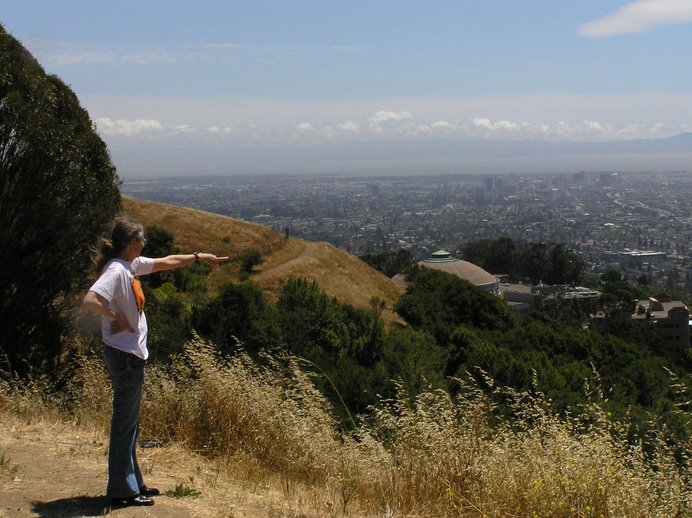



Birthday cake blues: "Back before there was cancer..."
I just read an interesting article about some scientists in white coats who investigated ancient Egyptian mummies and discovered that almost none of them had suffered from cancer. That's amazing. According to Ben Wedeman of CNN, cancer appears to be a relatively new phenomenon.
"Just imagine: a world without cancer. It's a tantalizing thought, recently floated by researchers at Manchester University in the UK. That world may well have existed, but in the distant past, according to their survey of hundreds of mummies from Egypt and South America. The researchers found that only one mummy had clearly identifiable signs of cancer." http://articles.cnn.com/2010-10-26/world/egypt.mummies_1_mummy-room-salima-ikram-bone-cancer?_s=PM:WORLD
Back in the day, apparently, almost nobody had cancer.
What possible cancer-causing factors do we modern humans now possess that weren't available to ancient Egyptian mummies way back then -- besides, of course, Hosni Mubarak? Hmmm. We now have the internal combustion engine, plastic, Monsanto, nuclear fallout, TSA scanners and...sugar!
Did ancient Egyptian mummies ever eat sugar? I think not. But do modern-day Americans eat sugar now? Heck yeah. The average American today eats approximately 150 pounds of sugar a year. Maybe that's why so many of us (including myself) have developed so many different forms of cancer? Perhaps I should do some further investigation here.
So in the interests of science, I trundled off to a lecture about sugar presented by Oakland's Women's Cancer Resource Center and nutrition expert Sandy Der -- and the nutritionist told us more stuff about sugar than I could ever have imagined. "Did you know that sugar is more addictive than cocaine? Sugar is as addictive as opiates." I didn't know that!
"How many people in this room are addicted to sugar?" Der asked. Almost all of us raised our hands, including me. "After lab rats had been given cocaine until they became addicted, they were then introduced to sugar." No contest there. Within just three days, the rats were no longer interested in cocaine and were off main-lining sugar.
And I bet that if you try that experiment on any little kid too (not the cocaine part, just the sugar), they too will become addicted to sugar within three short days. That's just pathetic. Only nine months old and already all-too-many American kids have already developed a jones.
And me too!
I too have become addicted to sugar. Obviously, birthday cake is the perfect food! And how about taking a break so I can run off to Fenton's for a hot caramel sundae? And don't you just LOVE eclairs? I've even done research on eclairs! http://www.berkeleyside.com/2010/06/24/in-berkeley-the-search-for-the-perfect-eclair/ Yeah I'm an addict.
"So let's navigate our way through Candy Land here," continued the lecturer. "Our cells get their energy from glucose -- but too little glucose or too much glucose can be harmful. There is a safety zone of blood-sugar levels that your body works best within." And if your blood-sugar levels are outside of that zone, there's going to be trouble.
"Perhaps even cancer?" I asked.
"I would not infer that sugar causes any disease in particular," answered the nutritionist, "although it may increase risk. For instance, sugar does not cause cancer." Okay -- but I still want my Mummy!
However, according to Der, eating too much sugar can cause lows and spikes in blood-sugar levels, sending your body on a wild roller-coaster ride that could result in hormone imbalances, insulin resistance, LDL problems, loss of vision, Alzheimers, diabetes, heart disease, stroke, kidney damage, cardiovascular disease and who knows what all else. So when you stray away from the mid-range of blood-sugar levels, you could be setting yourself up for nasty stuff to happen.
"What about if we just use artificial sweeteners instead?" someone in the audience asked hopefully.
"Artificial sweeteners aren't food. They are just chemicals," Der replied. Oh. So I might as well just be eating Rogaine or Drano?
Then the nutritionist gave us some suggestions on how to become unaddicted. Go cold turkey? Visit some posh rehab center? Join Narcotics Anonymous? Just Say No? Der's suggestions were more practical and convenient.
"To start with, avoid processed foods -- because they may contain a lot of hidden sugars. But if you do eat processed foods, read the labels first in order to avoid sugars often hidden in items like salad dressing, cereals and peanut butters. Chose whole foods instead. Nature itself offers us foods that don't have a lot of sugars. Try to eat within a healthy blood-sugar range. And another advantage of eating whole foods is that you will not longer have to read labels." There are no labels on grapes and squash. "But if your food does come with a label, don't be fooled by its use of big words. If an ingredient's name ends with 'ose,' that means it is a form of sugar."
Der then stated that eating complex carbohydrates such as fruit and whole grains is better than eating straight sugars because while there are also sugars present in complex carbohydrates, it takes the body longer to break these sugars down -- due to the presence of fiber -- and for this reason, complex carbs provide a much steadier blood-sugar source.
"I would suggest limiting carbohydrates, bu if you are going to eat them, they should be of the complex variety that usually contains fiber -- which slows the conversion into glucose." Der herself is a great fan of vegetables. "Try to eat five to seven servings a day." Did mummies do that? I guess they did.
"And while protein and fats do not contain sugar per se, they are, however, an excellent energy source." And you can get the highest quality energy from proteins contained in grass-fed animals and from healthy fats such as olive oil -- thus accessing more energy but without getting stuck with all those weird hormones, pesticides and toxins that Egyptian mummies knew nothing about.
"The key to healthier eating is in your complex carbs. You want to generate a slow release of glucose into your blood," continued Der. This will apparently help keep you from falling prey to sugar addiction. "In the beginning," while trying to kick the sugar habit, "it might be good to eat mostly frequent small meals and snacks consisting of protein, fats and complex carbohydrates." The great advantage to this strategy is that you will never have to wait a long time until your next meal!
"But you will always be tempted to fall back into your sugar addiction, so you need to develop a plan regarding how to regulate your blood-sugar."
I don't suppose that me running out to buy a half-gallon of Ben and Jerry's Coffee Heath Bar Crunch right now is the kind of plan that Der is talking about. Probably not. Although she did note that eating ice cream is better than eating frozen yogurt because the fat in the ice cream slows the conversion of sugar to glucose.
"Also, in order to kick the sugar habit you need to exercise, reduce stress, get seven to nine hours of sleep a night and drink lots of good clean water." And apparently if you can just wait out your sugar-craving for just fifteen minutes, it will go away all by itself. Yeah right.
"And if you feel yourself falling into the roller-coaster dips of low blood-sugar, you might want to eat a healthy snack to bring your blood-sugar back up. But never eat anything in excess. And also remember that eating white flour, refined carbs and highly-processed grain is practically the same as eating sugar. Eat real food. Like our ancestors did."
Yeah but it was easier for them. They were mummies.
PS: Although I tend to be satirical, flippant and facetious on the subject of sugar, in fact even I realize how important it is to curb my sugar jones. Addiction to sugar may not kill you as fast as getting hit by a speeding 18-wheeler, but too much of it may kill you just the same. And the crucial importance of Der's lecture on sugar is inestimable to me. I'm gonna start eating complex carbs, taking smaller, more frequent whole-food meals, and stop being a sugar junkie right now!
"Sure you will," commented my daughter.
PPS: For more information on nutrition and health, please visit Der's website at http://betterwaytowellness.com/. She is also available for individual nutritional consultations.
PPPS: I'm leaving for Antarctica on February 9, 2011 and from what I have heard regarding the horrors of seasickness caused by crossing the Drake Passage, I won't be wanting to eat ANYTHING for a while. Here's a video of the boat I'll be going on as it got rescued last December after giant waves broke all the windows on its bridge, destroyed all its communication equipment and slowed its engine down a whole lot: http://www.youtube.com/watch?v=eDTbopUYg20
But if I do get washed overboard or something while navigating the "roughest stretch of water in the world" and don't return home alive, then I won't have to worry about being addicted to sugar any more either. "They ain't got no Snickers bars down in Davy Jones' locker."

